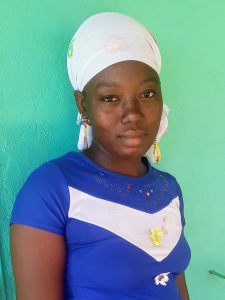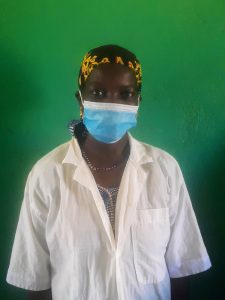When the Covid-19 pandemic struck Mali, many young women were too scared to access sexual and reproductive health services.
Batogoma was one of them. The 18-year-old was worried that she could contract the coronavirus if she visited her health centre in Nanérébougou, so she stopped going.
Access to sexual and reproductive health services is vital in Mali, where 90,000 babies – more than one in 10 – are born prematurely each year. Another 18% in the West African country have low birth weight and more than 8,200 children under five die every year due to the effects of preterm birth.
“I told myself that it is our death because health workers will contaminate us in our communities,” she said. But the Born on Time (BOT) program responded quickly to reassure girls and women of childbearing age that they were safe and should keep using those essential health services. BOT supported health centers with protection and prevention information, Personal Protective Equipment (PPE) and items such as hand sanitizer, liquid soap and reusable masks.
Now Batogoma and many others are visiting the health centre again. She said: “I learned from the radio and other communication channels about the preventive measures against Covid-19. We are more confident we will not get infected when we seek out sexual and reproductive health information and services.”
The radio messages also encouraged women, men, girls and boys to work together as a team and to support each other with the increased workload of household chores and childcare, while banning Gender-based Violence (GBV) once and for all.
Born on Time is the first public-private partnership dedicated to the prevention of preterm birth – now the leading cause of death in children under five globally. The initiative is expected to impact the lives of more than two million people across Bangladesh, Ethiopia and Mali, including 152,000 newborn babies, more than 196,000 adolescent girls and 933,000 women aged 20 and over.
On November 17, World Prematurity Day will raise awareness of the issues around premature birth, which among other reasons, is often caused by harmful gender norms and practices that affect the health, rights and well-being of women and adolescent girls.
In Mali, only about 15% of women use contraception. Many girls have limited knowledge about puberty, managing their menstrual cycle, how to prevent pregnancy and infection, and the importance of good nutrition during adolescence. Encouraging the use of contraception and preventing adolescent pregnancies are critical in reducing preterm births in Mali.

Oumu, age 16
Born On Time also encouraged 16-year-old Oumu – who previously had very little knowledge about puberty, periods or avoiding pregnancy – to be part of a group of girls being trained on adolescent sexual and reproductive health at a community health centre in N’togonasso. “I am managing my period better and this has kept me from being absent from school.” Oumu said: “Some had unwanted pregnancies before the arrival of this project because they had not received this training.”
They were also encouraged to communicate with their parents and community leaders to combat early and forced marriages, which are among the causes of premature births. Oumu said: “Last time there was a parent who wanted to marry his teenage daughter, with my friends we prevented this marriage through our plea to the village chief and to the parents of this teenager.”
In the area served by the community health centre at Nanérébougou, many girls and young women had limited access to quality sexual and reproductive health services until Born on Time stepped in. The project strengthened the centre’s technical and operational capacities and supported increased communication with the community.
But this good work was in danger of being reversed when the pandemic hit and mobility restrictions were put in place. As the information about the virus was still vague, many members of the community believed Covid-19 was very likely to be contracted at health facilities.

Adjara, a midwife
That even included the health workers themselves. A traditional midwife, Adjara, admitted: “I wanted to suspend the provision of sexual and reproductive health services because I feared I might be infected with Covid-19.”
But, like Batogoma, she was reassured by the measures taken by BOT. She said: “This support allows me to work in complete safety and to face the challenges of the sexual and reproductive health of women and girls during this pandemic period. Women and girls are reassured and come to me for their needs.”
The aim of Born On Time is to help empower women and adolescent girls, as well as to engage men, boys and community leaders, to tackle the harmful gender norms and barriers to maternal and newborn health, and sexual and reproductive health and rights. It also targets risk factors related to unhealthy lifestyle and behaviours, maternal infections, inadequate nutrition and limited access to contraception that can lead to babies being born too soon.
The five-year BOT project brings together the collective expertise and resources from Save the Children Canada, World Vision Canada, Plan International Canada, and is supported by the Government of Canada and the pharmaceutical company Johnson & Johnson. Its focus is on the most disadvantaged and hardest to reach people in Bangladesh, Ethiopia and Mali.
Thanks to the BOT partnership playing a critical role in safeguarding the provision of high-quality and safe sexual and reproductive health services and ensuring essential services remain accessible despite the challenges of the pandemic, women’s and girls’ choices and rights to sexual and reproductive health care have been respected, their voices are being heard and lives saved.
By Dr. Jean Pierre Okitakoy Diowo and Dr. Drissa Sanogo